[Event Report] Sustainable Development Goals (SDGs) Forum 永續發展目標 SDGs 2020 國際論壇 活動報導
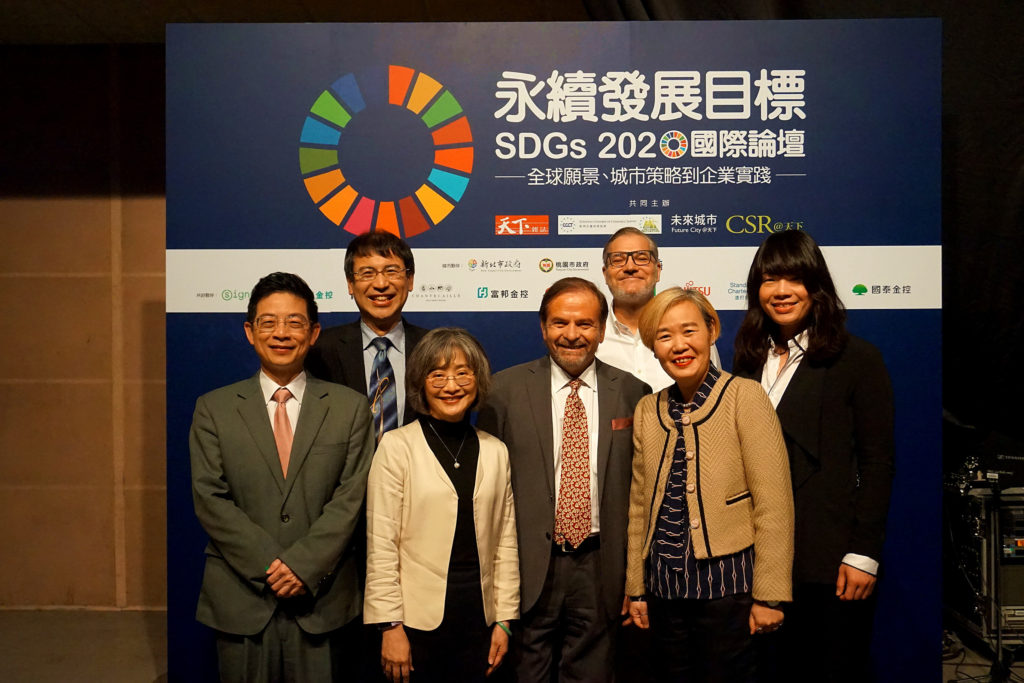
- Photo Gallery: Facebook
- Media Coverage: SDGs 天下雜誌未來城市SDGs專欄 / 全球願景、城市策略到企業實踐,台灣如何實現SDGs永續發展目標?
- Video: Youtube
On 20 March, the ECCT's Low Carbon Initiative cooperated with CommonWealth Magazine to arrange the full-day forum, which was recorded live for broadcast later. The forum was held to discuss progress and actions taken to meet the United Nation's (UN) 17 Sustainable Development Goals (SDGs). The forum featured opening remarks by Wu Yin-chuen, President of CommonWealth Magazine and ECCT Chairman Giuseppe Izzo and presentations in three sessions by the leaders of several multinational companies operating in Taiwan to achieve the SDGs. Executive speakers include IKEA, E.Sun Financial Holdings, PwC, Signify, Standard Chartered Bank, Atlas Copco, Carrefour, Fubon Financial Holdings, shared their insights and practices of achieving the 17 SDGs in their operations. Due to a rapidly worsening coronavirus outbreak, three Mayors: Hou You-Yi, New Taipei City Mayor 新北市市長侯友宜; Cheng Wen-Tsan, Taoyuan City Mayor 桃園市長鄭文燦; Lu Shiow-Yen, Taichung City Mayor 台中市長盧秀燕 will instead be videotaped separately afterwards at their offices.
Session: Vision for Cities of the Future
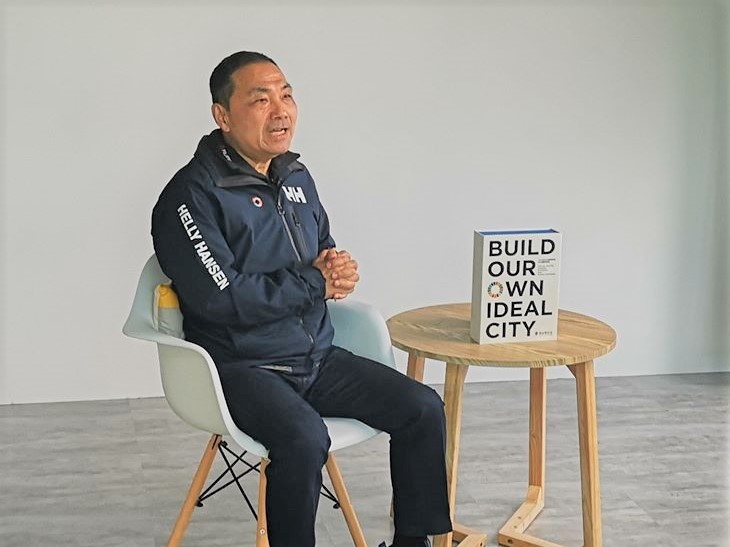 Hou You-yi, New Taipei City Mayor
Hou You-yi, New Taipei City Mayor
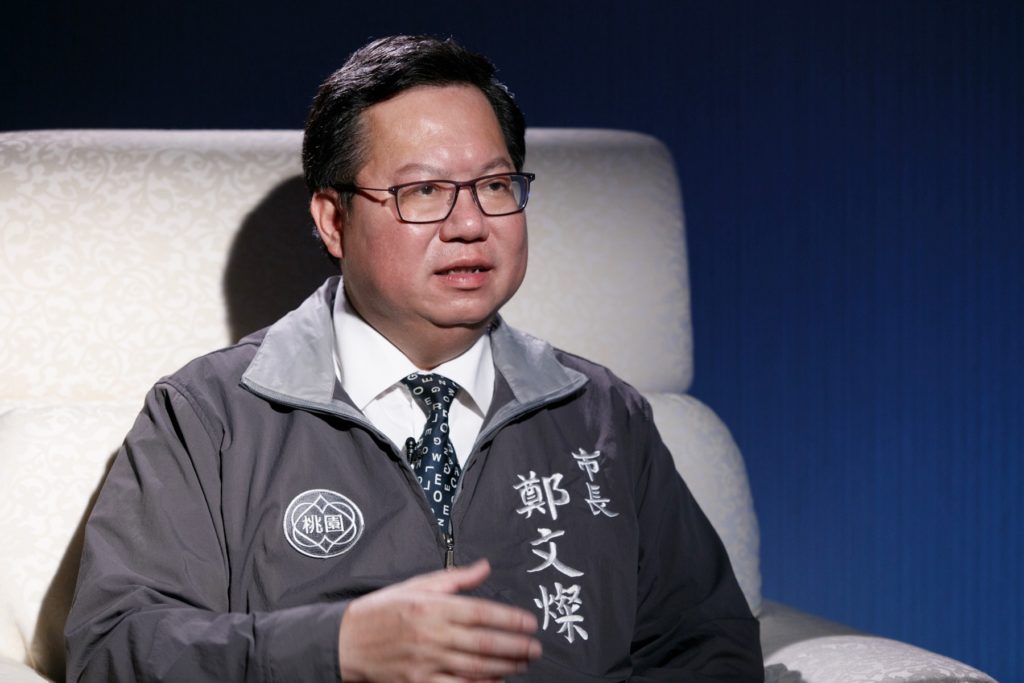
Cheng Wen-tsan, Taoyuan City Mayor
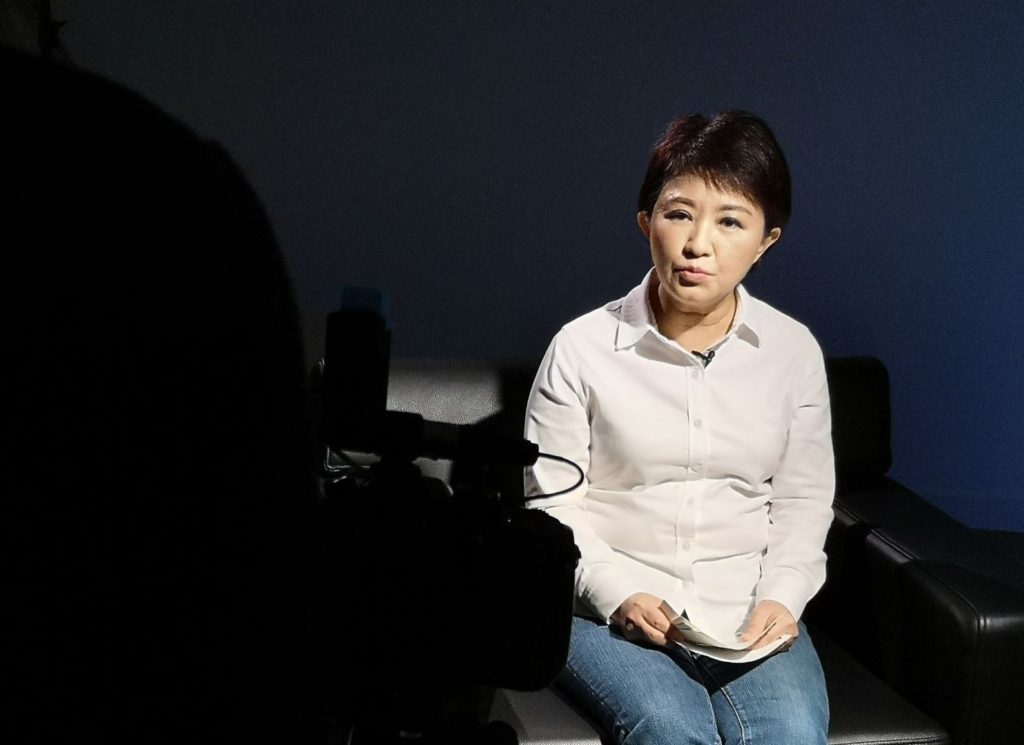
Lu Shiow-yen, Taichung City Mayor
Session 1: Models for corporate sustainability
Moderator: Dr Alan Lin (Tze-luen), Deputy Executive Director, Office of Energy and Carbon Reduction, Executive Yuan
In his presentation, Martin Lindström, Group Director of Dairy Farm, Ikea shared Ikea's ambition to be part of creating a better life for people and the planet. Ikea has set three roads forward: to be more accessible, more affordable and sustainable. The company's mission is to create a positive impact for people, society and the planet. To achieve this, it is working towards becoming a circular and climate positive business while at the same time making an impact and progress towards healthy and sustainable living. The company aims to not only be climate neutral but climate positive by 2030, meaning reducing more greenhouse gas emissions in absolute terms than the entire Ikea value chain emits, while at the same time, growing its business. Based on an internal evaluation of the company's climate footprint (of the entire value chain), the largest portion of carbon emissions is attributed to materials (40%) while the next largest contributor is product use (20%), followed by customer travel and home deliveries (11%).
Besides materials, Ikea is also looking to develop circular services. For example, it is working with Taipei 101 on a furniture-as-a-service leasing collaboration, whereby Ikea provides furniture, which it refurbishes when it is worn out so that it is not discarded but put back in the value chain.
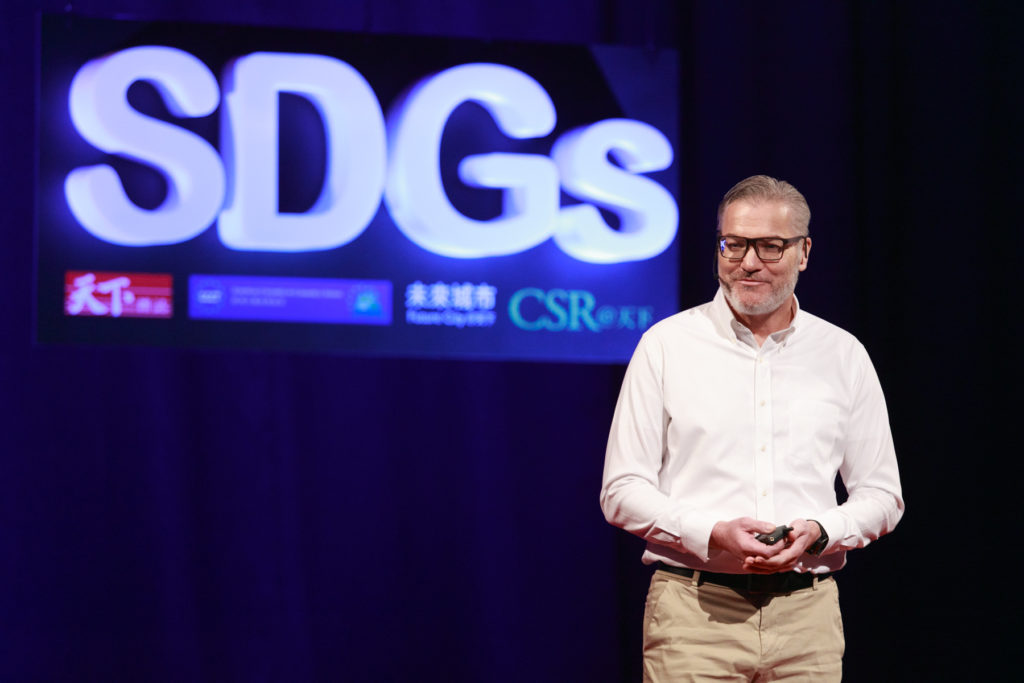
Martin Lindström, Group Director of Dairy Farm, Ikea
In her presentation, Eliza Li, General Manager and Partner, Sustainability Services for PwC Taiwan spoke about the status and challenges of meeting SDGs drawn from PwC's recent analysis of published reporting on the (SDGs) to date. For the firm's SDG Challenge 2019 report, it examined 1,141 company reports to find out how businesses are engaging with the SDGs. According to Li's, citing PwC's survey, 72% of companies mentioned SDGs and 21% of the companies made specific mention of the SDGs in the CEO or chairperson's statement, indicating that the goals are moving up the executive agenda. In addition, 25% of companies analysed mentioned the SDGs in sections of their reporting that discussed business strategy. However, only 1% of these companies' global reports set quantitative goals for SDGs and tracking the results.
Moreover, according to Li, the PwC Global SDGs survey found that most companies did not consider the impact of SDGs when formulating operational strategies. PwC believes that this is serious oversight and that the SDGs of governments and businesses should be integrated into their operating strategies. PwC is therefore advising business leaders to incorporate thinking, planning and execution of SDGs into business operations, expand alliances with other players in industry, government and academia and to embrace innovation.
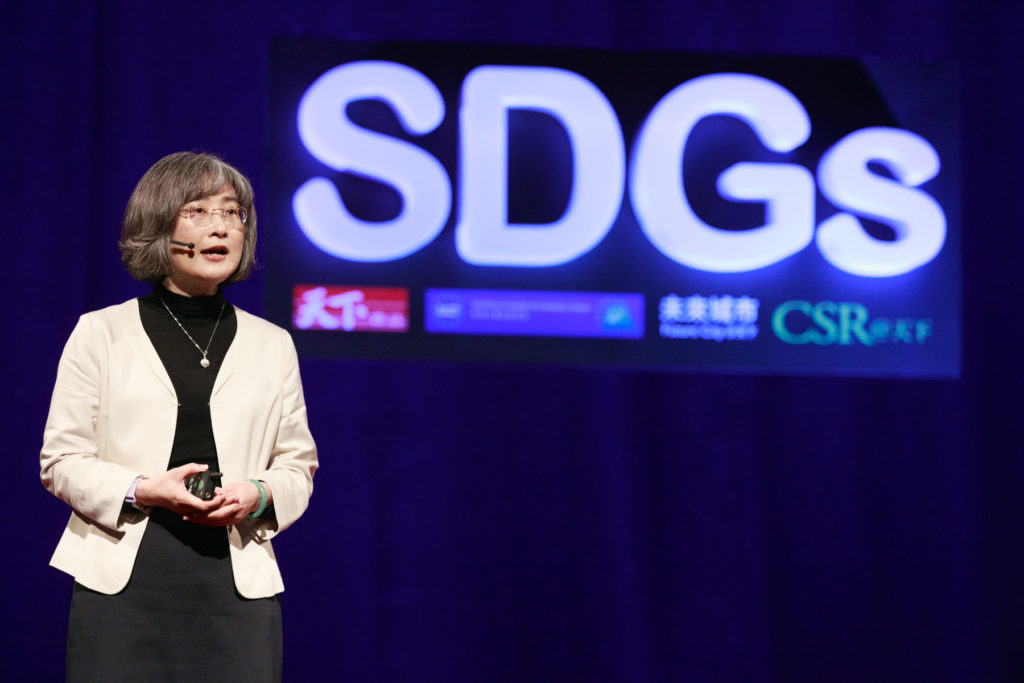
Eliza Li, General Manager and Partner, Sustainability Services for PwC Taiwan
Session 2: Global partnerships and international cooperation
Moderator: Hsiao Fu-yuan, Senior Director of Research and Development & Editor-at-Large, New Business Department, CommonWealth Magazine
In his presentation, Eric Yu, General Manager & Global Vice President of Signify Taiwan introduced his company's approach to innovation and sustainability. Signify is working towards sustainability in line with a number of SDGs, which the company has already integrated into its plans, including climate action, the circular economy, ensuring food availability, improving health and well-being and safety and security. Since lighting is responsible for a large portion of energy consumption, reducing the energy consumption of lighting is Signify's main focus. According to Yu, the company has sold more LED products than any other company and it is continuing to improve LED energy efficiency, popularize smart connected lighting systems and innovative solar lighting solutions.
To reduce the use of plastic, the company is using recycled materials for its products and has launched plastic free packaging. Given the need to feed a growing global population, more innovative agricultural solutions, such as vertical agriculture, will be needed. Signify has developed a light formula to improve crop yield and quality by 90% and reduce water consumption in vertical agriculture.
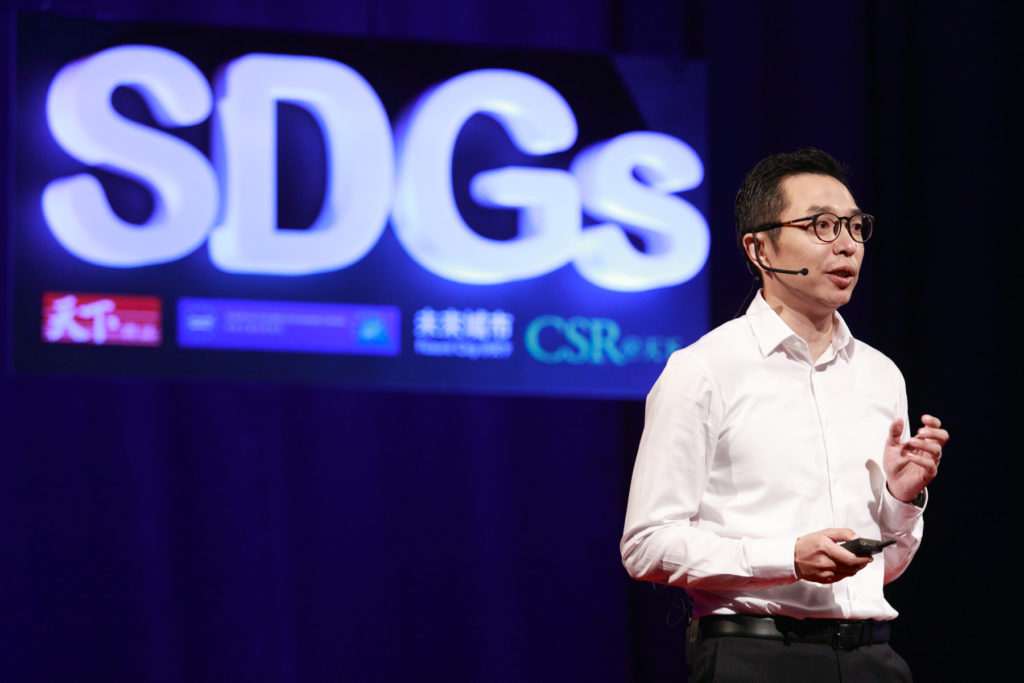
Eric Yu, General Manager & Global Vice President of Signify Taiwan
In his presentation, Anthony Lin, Chief Executive Officer of Standard Chartered Bank, spoke about his company's foundation, Futuremakers, a global initiative to tackle inequality and promote greater economic inclusion. Futuremakers aims to raise US$50 million between 2019 and 2023 to empower the next generation to learn, earn and grow through programmes focusing on education, employability and entrepreneurship. The initiative is especially urgent at this time because more than 200 million young people are unemployed globally. Futuremakers aims at meeting SDG goals 1 (no poverty), 4 (quality education), 8 (good jobs and growth) and 10 (reduced inequalities) through improving education, employability and developing entrepreneurs.
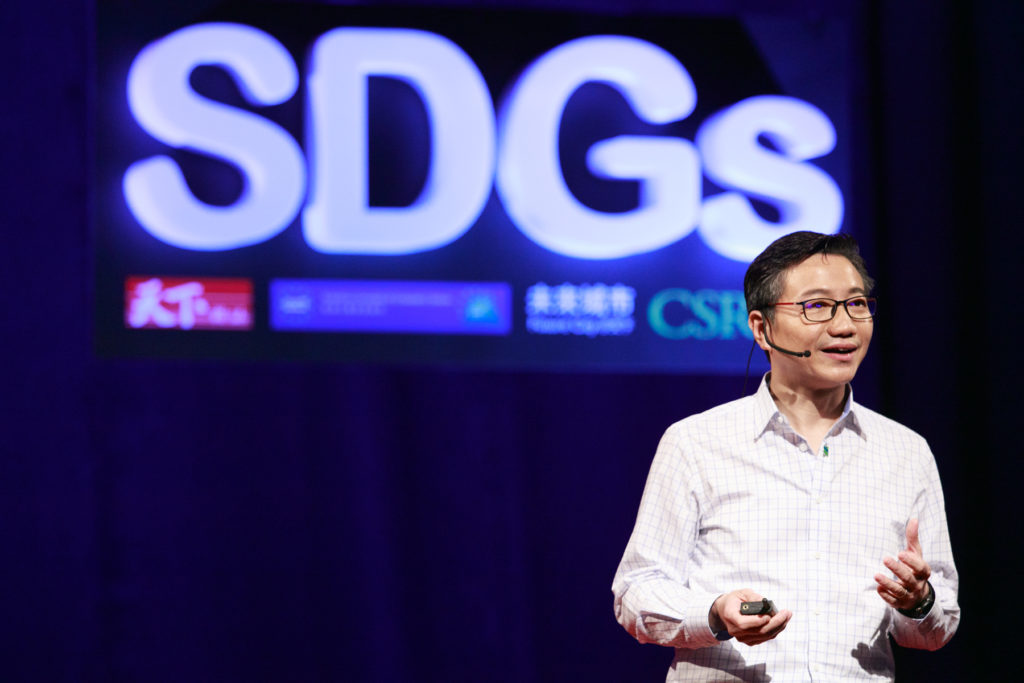
Anthony Lin, Chief Executive Officer of Standard Chartered Bank
In his presentation, John Demers, General Manager of Atlas Copco Taiwan talked about how his company is leveraging the global nature of its operations to reach SDG goals. The company's vision is to "To be First in Mind – First in Choice" for all stakeholders. Under this vision, the company's mission is to achieve sustainable and profitable growth. Six focus areas enable the company to achieve its mission and vision: people, safety and well-being, the environment, products and services, profitability and ethics. Goals have been set in all six areas. For example, in terms of the environment, the company's processes are designed to minimise the impact on the environment and use resources responsibly. All products and services must create lasting value and have a positive impact, which is why the company takes a life-cycle approach to innovation.
Demers went on to talk about some examples of the company's global partnerships. Its "Water for All" programme was created by Swedish colleagues over 35 years ago. It began by helping a community in Peru to get access to clean water and improved facilities for sanitation and hygiene. Today, the programme can be found in almost 40 countries, including Atlas Copco Taiwan, which has funded several water projects in South-East Asia. Atlas Copco has aggressive targets for CO2 emissions reductions in operations, including the transport of goods.
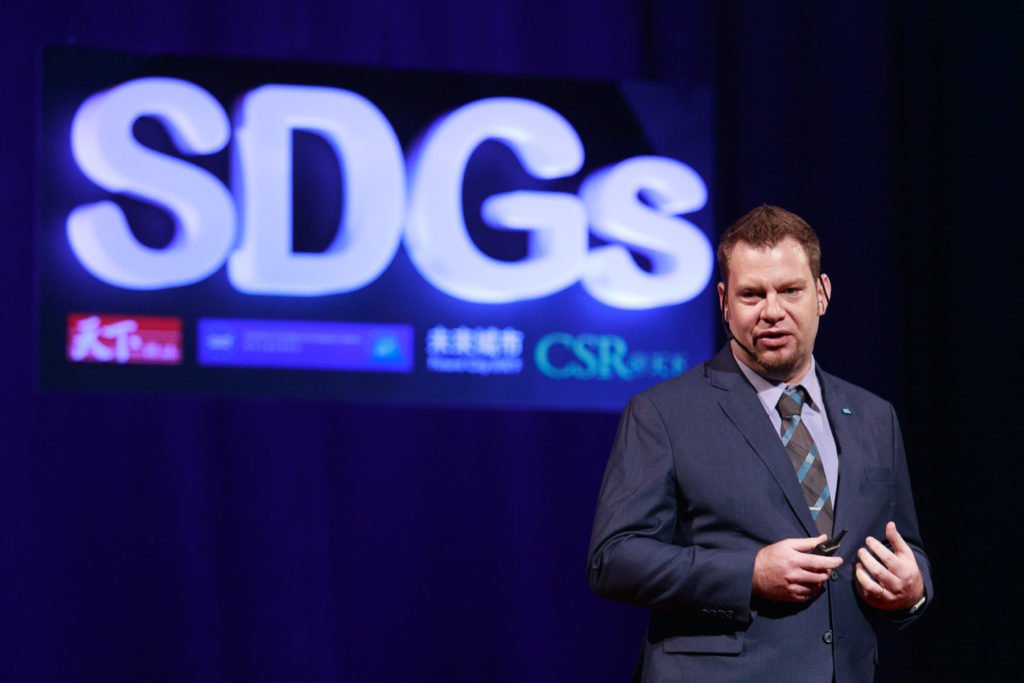
John Demers, General Manager of Atlas Copco Taiwan
Session 3: Global trends and local implementation
In his presentation, Lawrence Wang, CEO of Carrefour Taiwan outlined how SDGs are integrated into Carrefour's global and local operations. He stressed that the company's approach and promises are the same wherever it operates in the world: to serve, take care of, commit to, respect and involve all stakeholders, including customers, associates, shareholders, partners and the environment. The company refers to its suppliers as partners and its customers as guests.
In terms of working towards meeting SDG 2 (zero hunger), Carrefour has an ongoing programme to donate tonnes of food to food banks. According to Wang, as of 2019, the company had donated 380 tonnes of food to food banks. In spite of the substantial donations, the number of customers and sales at Carrefour continued to grow. As part of efforts to meet goals 3 (good health and well-being) and 12 (responsible consumption and production), Carrefour was the first retailer in Taiwan to commit to cage-free eggs. When others followed suit, Carrefour did not see them as competitors but welcomed them as joining their efforts towards creating a more sustainable planet. Carrefour has a strong bond with local farmers growing organic crops. Their efforts are helping to protect the environment and habitats of endangered species like frogs and leopard cats. Carrefour continues to cooperate with local banana and litchi farmers, whose average age is 82. At the same time Carrefour is working to reduce plastic packaging in its products.
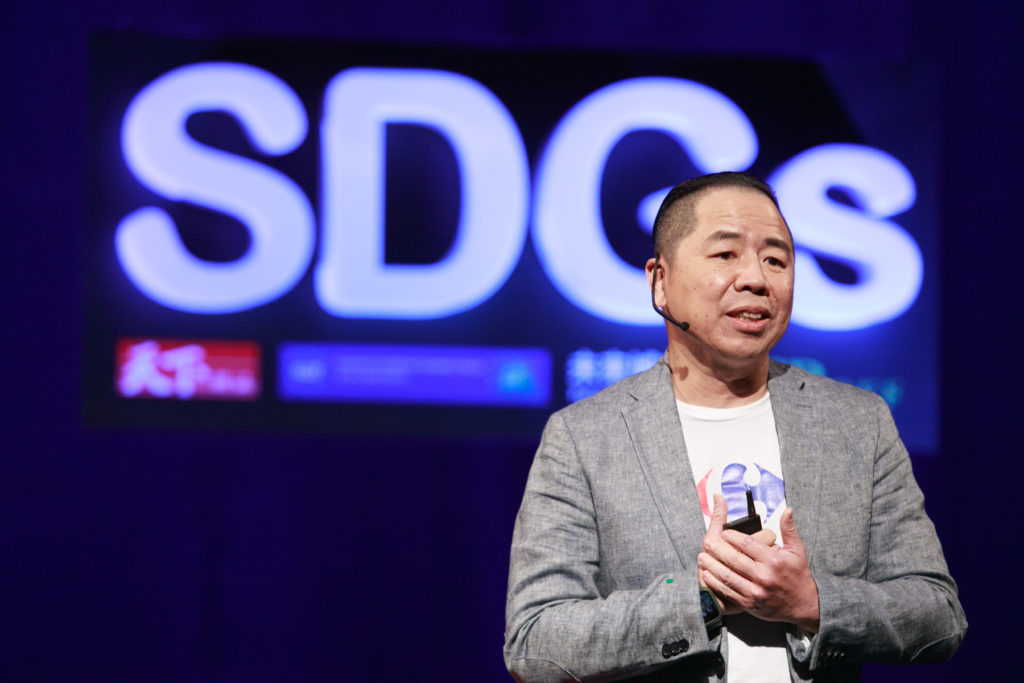
Lawrence Wang, CEO of Carrefour Taiwan
